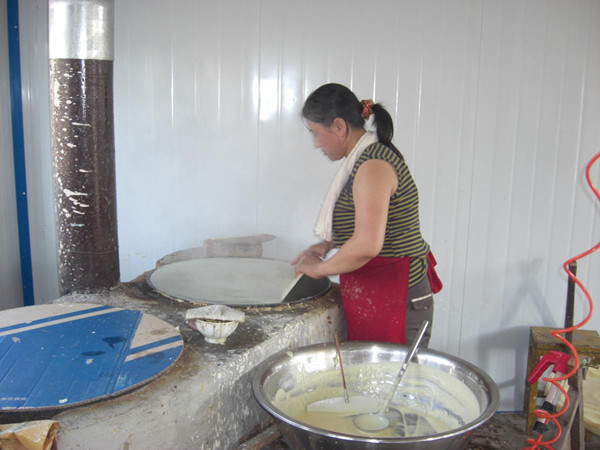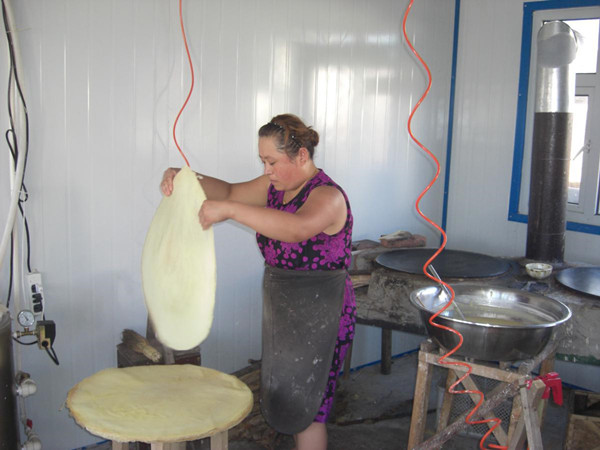Pancake perfection: the skill behind Northeast China's delicacy

A farmer makes pancakes in a workshop in Wojikou village of Tiangang township, Jiaohe city, Jilin province. [Photo provided to chinadaily.com.cn]
As the weather warms up, farmers in Northeast China have welcomed the busy spring farming season.
However, Liu Xiufu and his wife, Di Jinxiu, are busy making pancakes in their workshop in Wojikou village of Tiangang township, Jiaohe city, Jilin province.
The crackling sound of burning firewood fills the air as Di swings her arms in front of the pancake griddle.
Neatly folded pancakes are stacked and ready to be delivered to customers in Japan.
Liu has devoted 15 years to perfecting the skills of making pancakes. In the village, he is known as the pancake master.
His pancakes are made of high-quality corn grits with a small amount of rice powder and soybeans. The batter is mixed with water and then spread over a hot pancake griddle above burning firewood.

A farmer makes pancakes in a workshop in Wojikou village of Tiangang township, Jiaohe city, Jilin province. [Photo provided to chinadaily.com.cn]
"Mastering the heat requires rich experience," said Liu. "It takes at least five or six years to get the best thickness and evenness of the pancakes."
The couple can produce five to six hundred pancakes daily, earning up to 1,000 yuan ($138.14) on the busiest days.
The Wojikou pancake recipe has a history of over 300 years and is listed as a provincial-level intangible cultural heritage.
Every household in the village possesses the traditional craftsmanship of pancake making.
There are over 200 households in Wojikou's pancake industry, producing over 1,000 metric tons of pancakes annually, with an annual output value of 4 million yuan.
They have registered two pancake trademarks - Wojikou and Woji - and their pancakes have been sold in cities across the province, Beijing, Shanghai and foreign countries such as Singapore.
